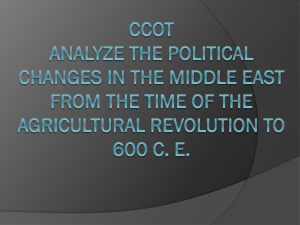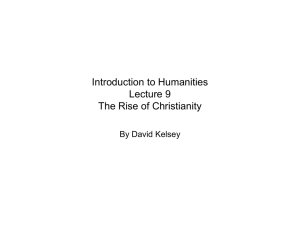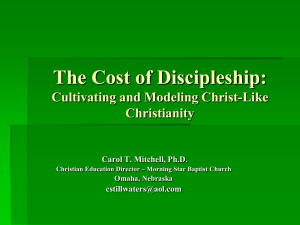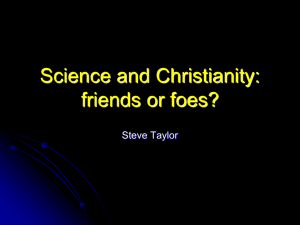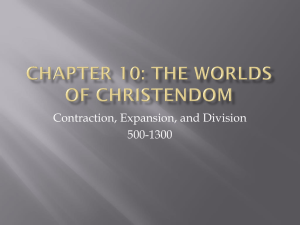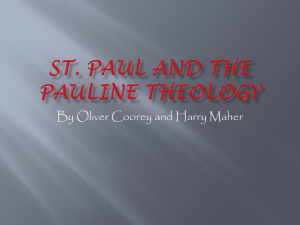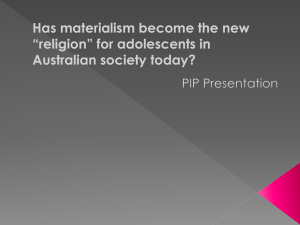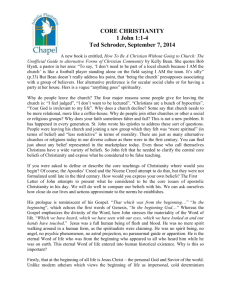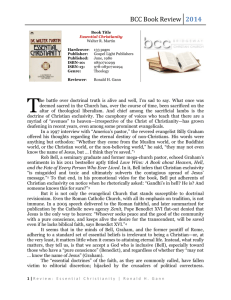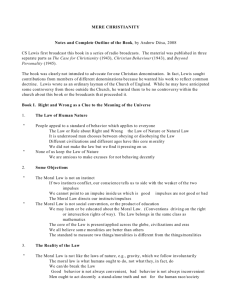17th - Grace Church
advertisement
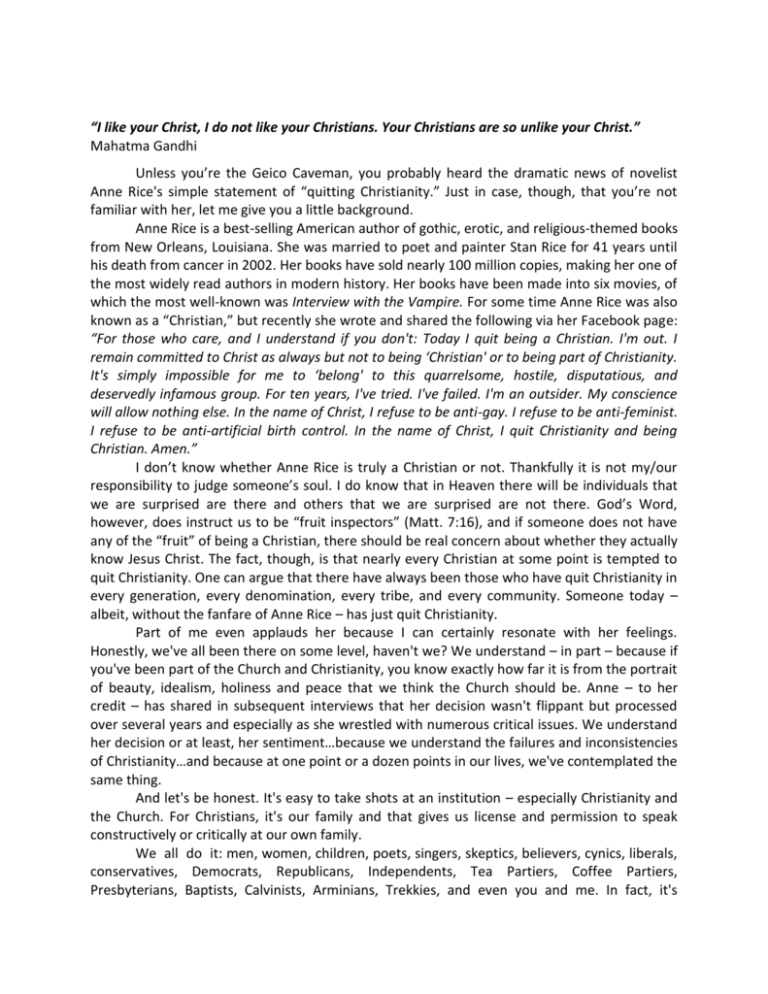
“I like your Christ, I do not like your Christians. Your Christians are so unlike your Christ.” Mahatma Gandhi Unless you’re the Geico Caveman, you probably heard the dramatic news of novelist Anne Rice's simple statement of “quitting Christianity.” Just in case, though, that you’re not familiar with her, let me give you a little background. Anne Rice is a best-selling American author of gothic, erotic, and religious-themed books from New Orleans, Louisiana. She was married to poet and painter Stan Rice for 41 years until his death from cancer in 2002. Her books have sold nearly 100 million copies, making her one of the most widely read authors in modern history. Her books have been made into six movies, of which the most well-known was Interview with the Vampire. For some time Anne Rice was also known as a “Christian,” but recently she wrote and shared the following via her Facebook page: “For those who care, and I understand if you don't: Today I quit being a Christian. I'm out. I remain committed to Christ as always but not to being ‘Christian' or to being part of Christianity. It's simply impossible for me to ‘belong' to this quarrelsome, hostile, disputatious, and deservedly infamous group. For ten years, I've tried. I've failed. I'm an outsider. My conscience will allow nothing else. In the name of Christ, I refuse to be anti-gay. I refuse to be anti-feminist. I refuse to be anti-artificial birth control. In the name of Christ, I quit Christianity and being Christian. Amen.” I don’t know whether Anne Rice is truly a Christian or not. Thankfully it is not my/our responsibility to judge someone’s soul. I do know that in Heaven there will be individuals that we are surprised are there and others that we are surprised are not there. God’s Word, however, does instruct us to be “fruit inspectors” (Matt. 7:16), and if someone does not have any of the “fruit” of being a Christian, there should be real concern about whether they actually know Jesus Christ. The fact, though, is that nearly every Christian at some point is tempted to quit Christianity. One can argue that there have always been those who have quit Christianity in every generation, every denomination, every tribe, and every community. Someone today – albeit, without the fanfare of Anne Rice – has just quit Christianity. Part of me even applauds her because I can certainly resonate with her feelings. Honestly, we've all been there on some level, haven't we? We understand – in part – because if you've been part of the Church and Christianity, you know exactly how far it is from the portrait of beauty, idealism, holiness and peace that we think the Church should be. Anne – to her credit – has shared in subsequent interviews that her decision wasn't flippant but processed over several years and especially as she wrestled with numerous critical issues. We understand her decision or at least, her sentiment…because we understand the failures and inconsistencies of Christianity…and because at one point or a dozen points in our lives, we've contemplated the same thing. And let's be honest. It's easy to take shots at an institution – especially Christianity and the Church. For Christians, it's our family and that gives us license and permission to speak constructively or critically at our own family. We all do it: men, women, children, poets, singers, skeptics, believers, cynics, liberals, conservatives, Democrats, Republicans, Independents, Tea Partiers, Coffee Partiers, Presbyterians, Baptists, Calvinists, Arminians, Trekkies, and even you and me. In fact, it's become the somewhat cool, hip, and edgy thing to do…because you are more [wait for it...wait for it] – - authentic. While I can't argue that Anne's descriptions are entirely inaccurate, I really do wonder if we've allowed these assumptions, judgments, and descriptives to become the totality of Christianity. Is it possible that we've given these descriptives so much press that it has grown bigger than reality? They have grown to be such that many – perhaps including ourselves – have come to believe that Christianity is all about being anti gay, anti-feminist, anti-liberal and anti-science? Are we known primarily for what we are opposed to and against? Years ago, I left a group because they were primarily known for what they were against yet not what they were for. So are those descriptives realities for some and in some “Christian” communities? Yes. Are they the totality of Christianity? Absolutely not! The essence of the Gospel is that Jesus Christ died for an imperfect humanity. That isn't license for Christianity to be anti-gay, anti-feminist, and anti-whatever we think the Church is against. But leaving Christianity or no longer desiring to be known or identified as a Christian isn't the answer. The answer is right before us. The good news never has been institutional religion. It isn't a denomination, Christianity, or the Church. The good news is the Gospel and the Gospel is not just merely propositional truth but Truth that has been personified in the very person of Jesus the Christ – fully God and fully human – who chose to dwell and live among us and ultimately, go to the cross...for an imperfect, depraved, and fallen world and Church. This is why – as much as I might sometimes be tempted to join Anne Rice, I am publicly declaring: My imperfect love for an imperfect world (and Church) – for whom Jesus Christ demonstrated perfect love. I am only a Christian because a perfect Christ demonstrated perfect love for an completely sinful humanity. And like the Apostle Paul, I’m the worst sinner that I know (1 Timothy 1:15).

